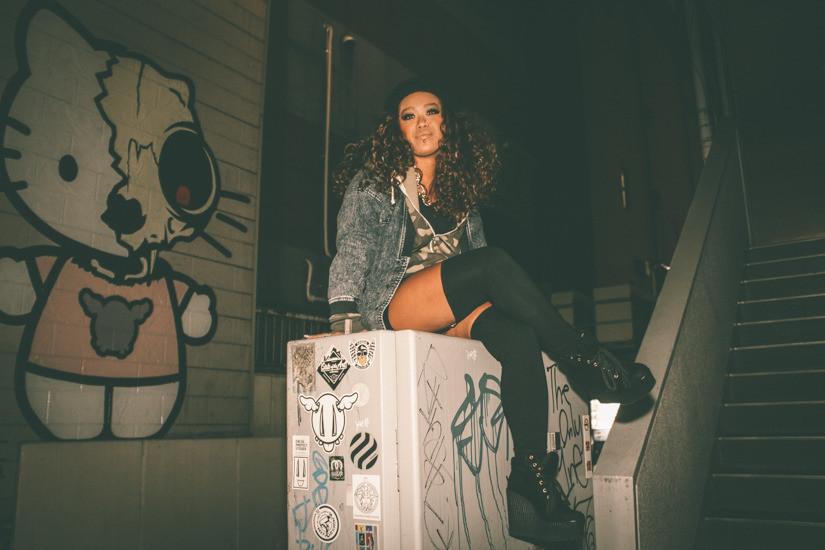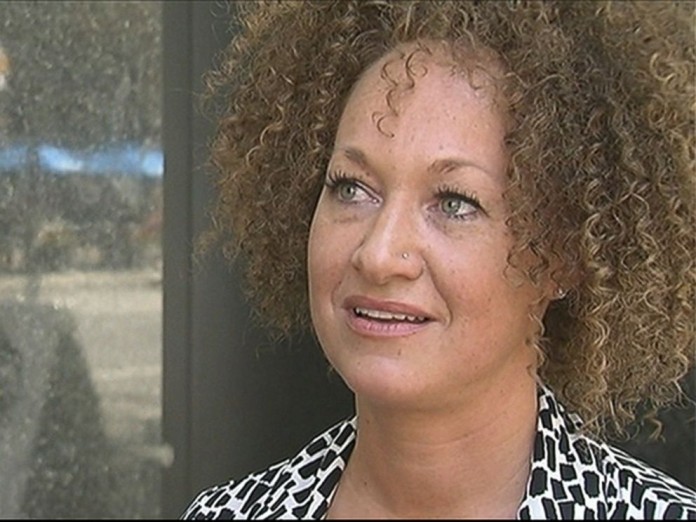In America, a country where race means everything about one’s life chances and especially treatment by law enforcement officials, there seems to be a safe and dangerous side of the railroad tracks with regard to race.
Whites generally tend to get the better end of the racial bargain, being that they control the schools, businesses, police stations, prisons, and most other institutions in the country, whereas African Americans, having little control over anything, are subject to discriminatory, prejudicial, and often outright violent white treatment.
Focusing narrowly on this parallel of safe and dangerous, many would like to question why Rachel Dolezal, a white woman, would venture to change her physical appearance in order to identify and present as a Black woman.
The Guardian’s Gary Younge recalled:
People generally “pass” in order to advance their life chances. Given the nature of America’s racial hierarchy, improving one’s lot in such a drastic manner involved black people passing as white — not white people heading the other way.
Well, first it is necessary to debunk the idea that people’s understanding of Blackness should fall on such a limited scope of safe and dangerous, of privilege and disadvantage. To understand more complicated reasons explaining why whites might pass as Black, we have to look beyond passing for life chances or social mobility.
Indeed, we have to rid ourselves of the notion of associating Black culture with negativity. It is a Western invention that African Americans unintelligently parrot.
The New Yorker’s Jelani Cobb falls into this trap. He wrote:
Among African-Americans, there is a particular contempt, rooted in the understanding that black culture was formed in a crucible of degradation, for what Norman Mailer hailed as the “white Negro.” Whatever elements of beauty or cool, whatever truth or marketable lies there are that we associate with blackness, they are ultimately the product of a community’s quest to be recognized as human in a society that is only ambivalently willing to see it as such.
Only those who fail to know the world and African American existence before the transatlantic slave trade would demean Black culture by associating it with words like pathetic phrases like degradation and pleading for a humanity that is in need of recognition by white society.
We have to stop taking Hollywood and white media at its word—that African American history started with slavery—and connect the stories of African Americans to the history of their ancestors, Africans, that came thousands of years before the shackles and chains that African Americans wrongly name as their origins.
The Image of the Black Archive and Library at Harvard University’s Hutchins Center contains numerous images of venerable Africans in history.
It is in these stories that we would find not only an appreciation for but a worship of Blackness and Black culture. These narratives far preceded any ideologies that exist today.
Of course, they are buried in books and not on your everyday Twitter feed, so there is a much needed effort to look beyond readily available media to understand relations between races that preceded these recent centuries of slavery and propaganda.
Even examples from contemporary culture illustrate a worship of Blackness.
Japanese teens who want to be Black, for example, are known as B-stylers, short for Black and Lifestyle. Obsessed with African American culture and especially hip hop, these teens stop at no lengths to look like African Americans.
To darken their appearance, they visit tanning salons weekly and regularly apply dark foundation to their skin. They also make trips to African hair salons to get their hair styled in curls or braids.
Could Rachel Dolezal also have fallen in love with a culture that has transfixed many across the globe?

Regardless of Rachel Dolezal’s affinity for Blackness, some are not convinced that she deserves any special attention.
Ebony Magazine’s Jamilah Lemieux wrote:
Rachel Dolezal is not an ally; she is not a champion of Blackness. And, reinvented as a light-skinned, light-eyed Black woman with a Howard degree, she was able to gain more access to Black cultural spaces than she would as a White lady who simply likes Black culture and Black men—and those women get a LOT of access.
Ms. Lemieux raises a fine point about the access that Rachel Dolezal received for years engrossed in Black communities.
What might prompt Ms. Dolezal, a white woman of two white parents, to desire to gain so much access to Black communities as to become president of the Spokane, Washington chapter of the National Association of Advancement, adjunct professor of Africana studies, and college graduate of the historically Black college Howard University?
A less discussed theory of her unorthodox behavior is that she is could be part of some covert scheme to infiltrate Black organizations. Who could Ms. Dolezal have encountered while enrolled at Howard University in Washington D.C. or before entering college? What experiences could she have had that would lead her to become a spy on Black communities, so much that she immersed herself in Black life?
It is not a far stretch to suggest she is part of some clandestine establishment. Black communities have been transgressed before, so there is no telling what plans she had in store, whether for becoming a national spokesperson for the NAACP or leading Black people into the next Jim Crow after the end of mass incarceration.
Whether Ms. Dolezal is an uber-fan or an undercover go-between, either way, her preoccupation with Black culture raises eyebrows. Though African Americans should be ever more vigilant about policing the boundaries of their group, if it is to have some membership and not just a one-size-fits-all embrace and therefore suffer the demise akin to the annihilation of the concept of “diversity.”
If the NAACP, likewise, is to be respected and not mocked, it cannot condone lying, on a formal application, no less. Falsifying information is not act that ever commit.
Many Black women, however, can stand to learn something from Ms. Dolezal—namely, to love their appearance so much that they do not hide from the sun, to wear their natural hair proudly, and also to take interest in and advocate for policies that impact Black lives.
If there is anything to take from this bizarre incident, it is that Blackness is more beautiful than we could ever imagine, so much that we should cherish it dearly and never let go.










the beauty is in character… not color! where is ur own?